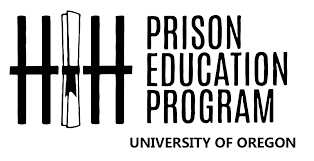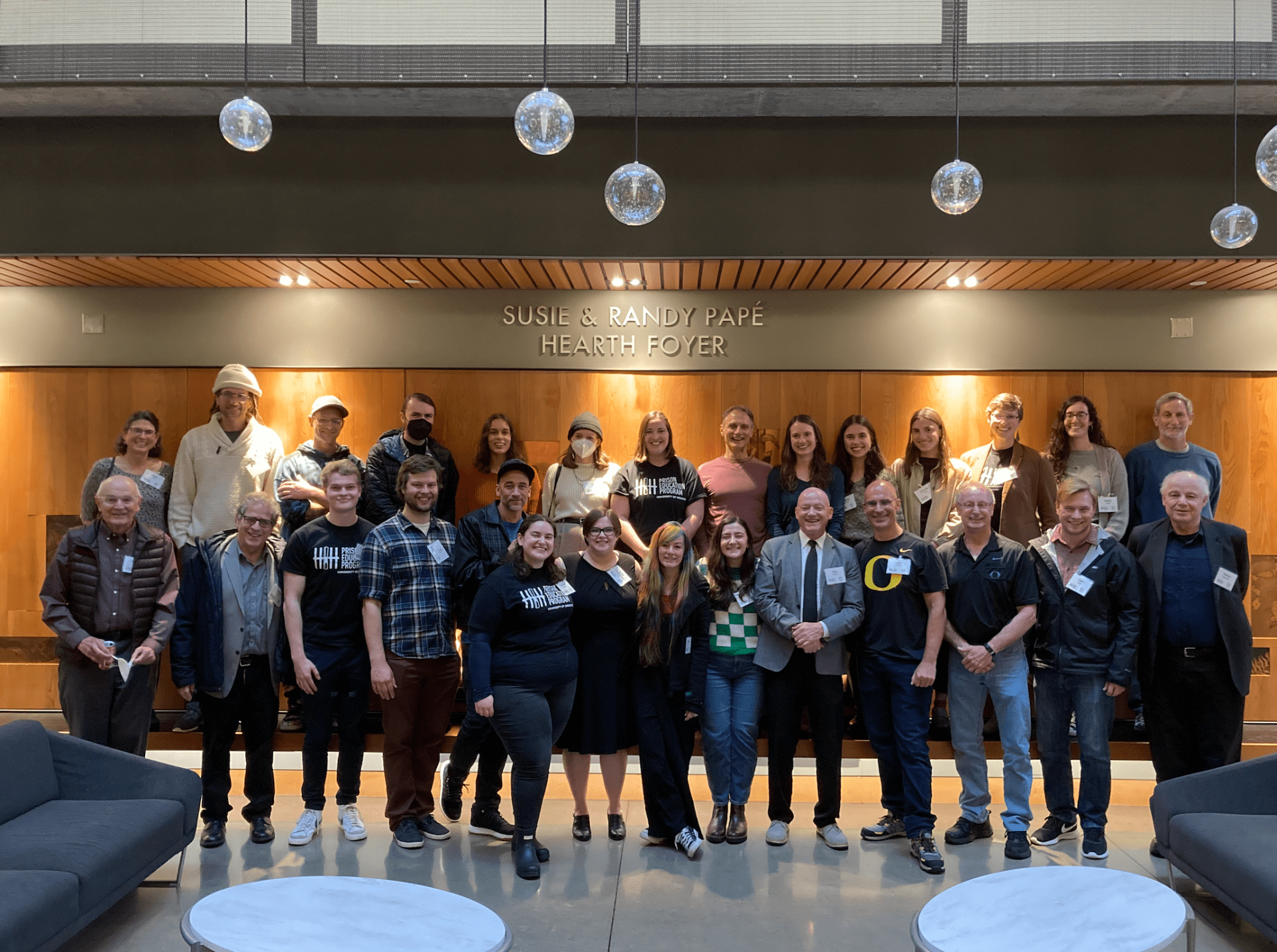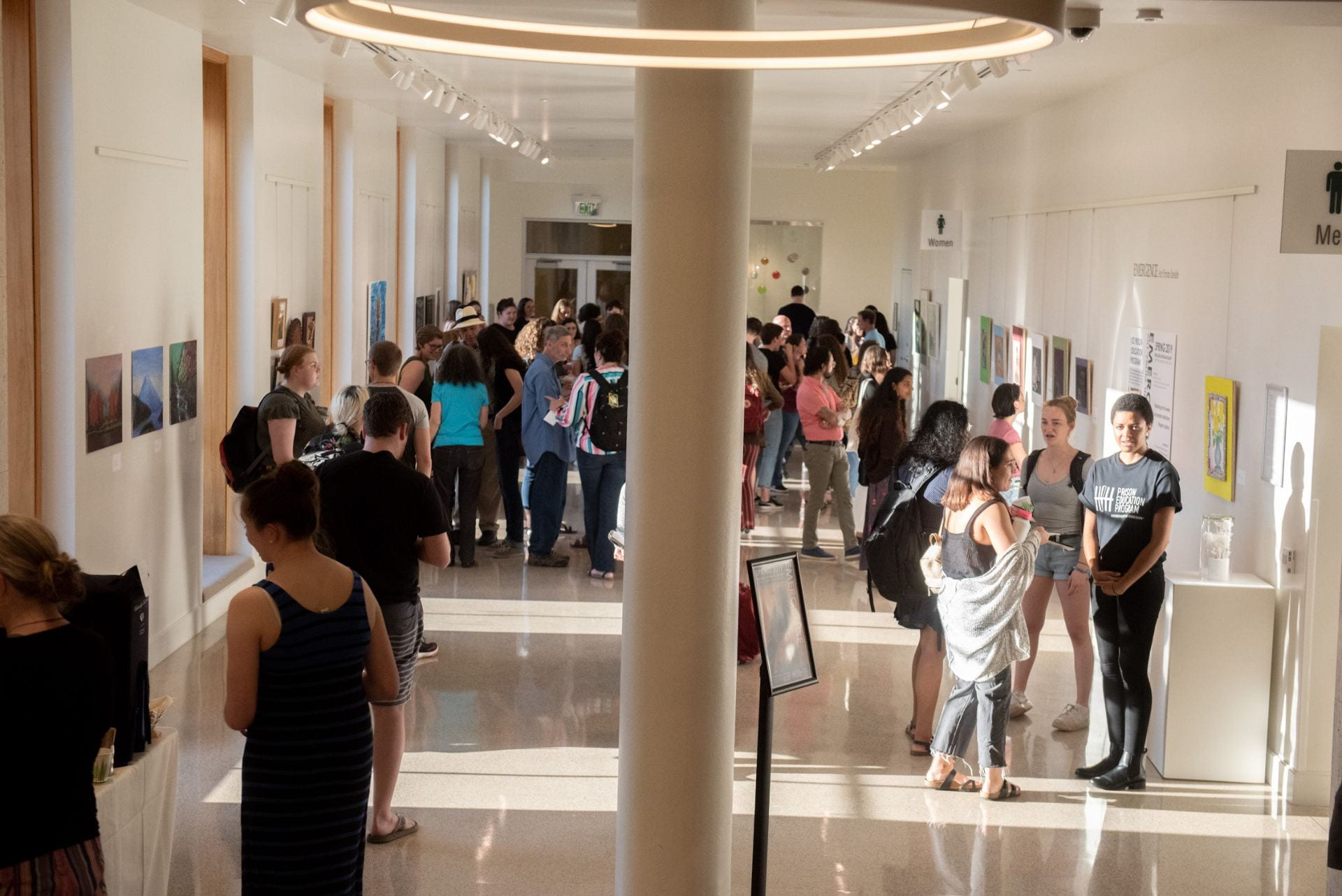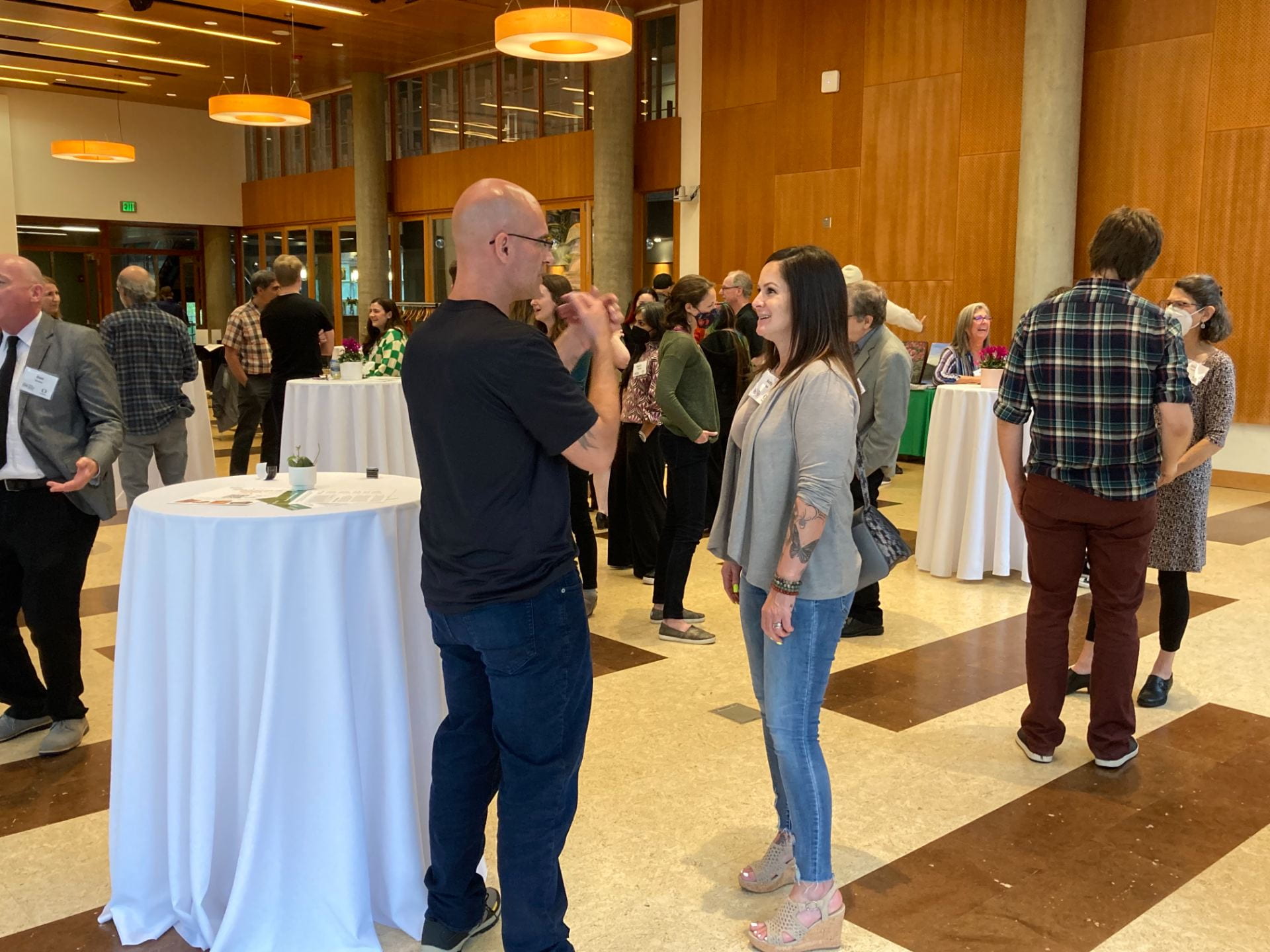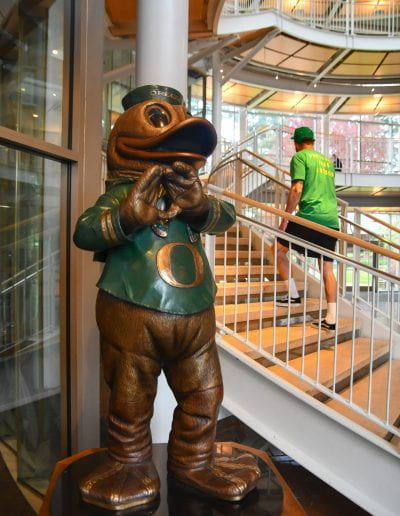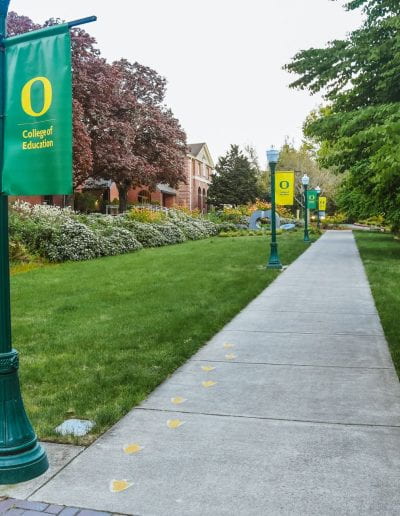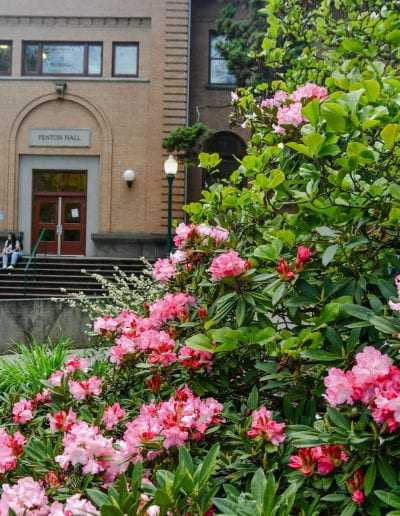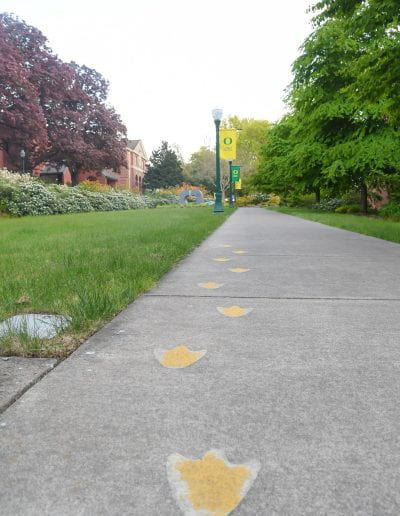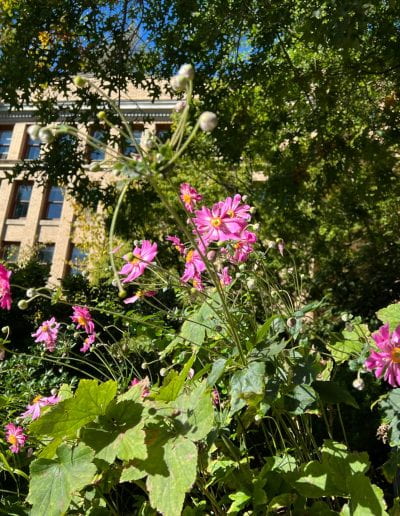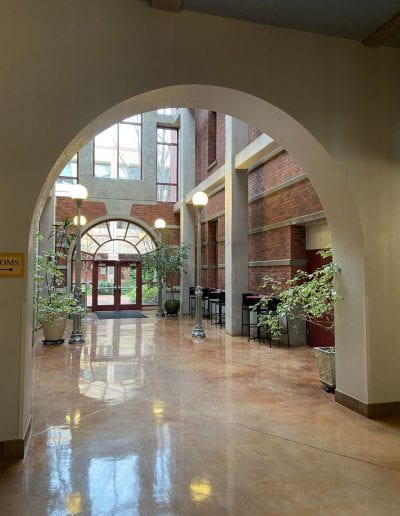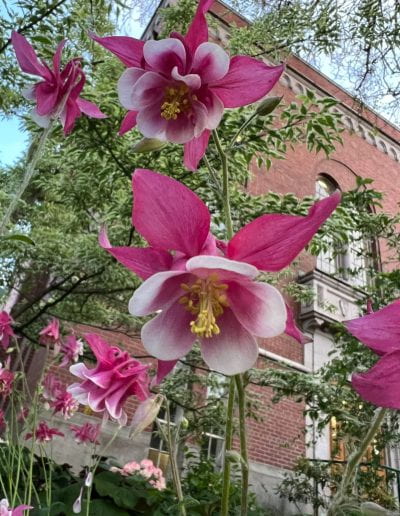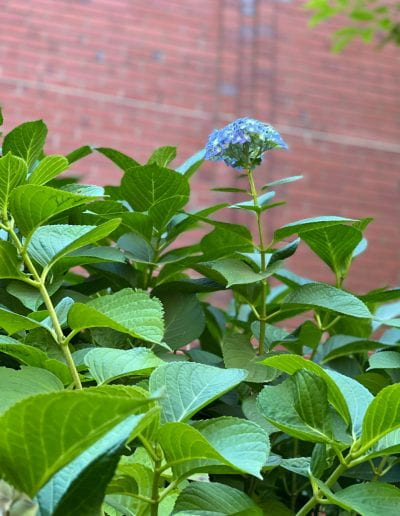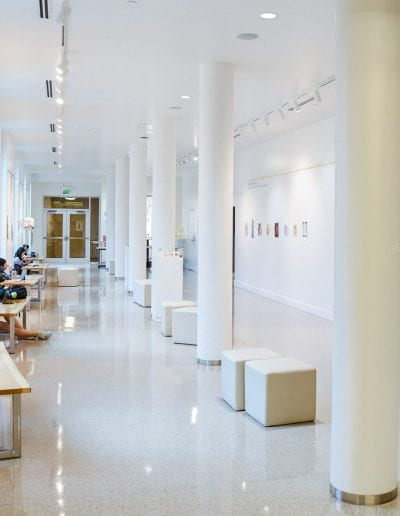Re-Entry
When people return to the community after spending time in prison, they face a wide array of challenges and also opportunities. There are some fabulous existing resources that already exist (linked below). This page shares some advice for folks who are re-entering and are preparing to be students on the University of Oregon campus. These were developed by one of our program interns who was previously incarcerated.
STEPS TO SUCCESS/FAQ
Welcome to the University of Oregon. You have enrolled, registered for classes, and are about to begin your first term on the UO campus. While this is an exciting time, it can also leave one feeling a bit overwhelmed and anxious. Don’t worry, this is completely normal. Luckily, we have compiled this list of frequently asked questions, tips for success, and a list of campus resources to help aid in a smooth successful transition to on-campus education.
Financial Aid: Applying for financial aid (FAFSA) should be one of the first steps you take in your academic journey. Applications for Aid generally open sometime in October every year. The application is extensive so make sure you have the time to complete it. Aid can provide valuable grants that do not require repayment and can help pay for a large part of your tuition. It is good practice to make the annual FAFSA application part of your annual routine, the earlier you submit the better your chances are of receiving funding.
FAFSA: https://studentaid.gov/h/apply-for-aid/fafsa
Getting to Campus/ Parking and Bus Passes: Getting to and from campus is just as important as knowing your way around once you arrive. Plan your commute ahead of time and allow for slight delays along the way. A 10-20 minute buffer is a good rule of thumb. If traveling to campus by car, be aware that parking is limited and costs money. If paying for parking is not an option, identify free parking options ahead of time and incorporate walking time into your commute. The UO provides bus passes to all students but it is your responsibility to acquire them. This can be done when you claim your student ID.
UO ID: https://emu.uoregon.edu/get-your-card
Student bus pass: https://transportation.uoregon.edu/bus
Know Your Surroundings: Being punctual is a good habit to form as a successful student, however in order to be on time you need to first know where you are going. Before the first week of classes begins familiarize yourself with the UO campus, either by visiting in person or via the UO campus maps. Find out what building each of your classes is in and what room. UO interactive campus maps are great for this. The interactive map allows you to navigate indoor and outdoor maps of the UO campus.
Interactive Campus Map: https://www.uoregon.edu/maps
Office Hours: Office hours are a great way for you to introduce yourself to your professor and get to know a bit about them as well. Networking is an important part of the college experience and office hours offer an opportunity to make connections with faculty, as well as give professors a face to go along with the name in the grade book. Try and make a habit of visiting your professors during the first week of classes.
WiFi: A reliable internet connection is a very important component for success as a student. Fortunately, there are programs designed to provide internet at a fraction of the regular cost to qualifying applicants. One program is the Affordable Connectivity Program (ACP) which provides a subsidy of up to 30 dollars a month to those applicants that qualify.
Low-Income/ Student WiFi: https://www.cabletv.com/blog/low-income-internet
ACP: https://www.affordableconnectivity.gov/
Terminology: As you may have already realized, higher education is filled with frequently used words and terms. Words like registrar. syllabus and transcript may not seem completely foreign, but knowing what they mean in the context of your education is important in helping you feel more at ease while navigating college life. Follow the link below for a full list of need-to-know college terminology.
College prep 101: http://www.collegeprep101.com/college-terminology.html
Duck Web: Duck web is how you will interact with all things UO. This is where you will add/drop classes, download transcripts, view grades, check financial information, and much more. As soon as you receive your Duck ID and 95#, you can access Duck Web. Familiarize yourself with the different features of the website as you will be interacting with it frequently throughout your time at the UO.
Duck Web: https://duckweb.uoregon.edu/duckweb/twbkwbis.P_WWWLogin
Scholarships: It is important to fully understand the financial aspect of pursuing an education. Creating a budget, calculating costs, and identifying potential funding sources are ways to mitigate unneeded stress further down the road. Scholarships are a way to avoid taking on unnecessary debt. The Office of Student Access and Completion (OSAC) is a place to find and apply for various scholarships. The annual application deadline is usually the first week of March, so plan ahead and set aside time in your Winter term schedule to complete the application process. The UO also offers scholarships, information on these various scholarships can be found through the link below. All scholarships usually have an application process that involves crafting multiple personal statements that paint a unique picture of the applicant to funders. Take the time to write and revise thoughtful essays and organize all scholarship materials in a folder that can be revisited annually.
UO Scholarships: https://financialaid.uoregon.edu/scholarship-dashboard
OSAC: https://app.oregonstudentaid.gov/
Canvas: Canvas is how you will interact with all your courses online. You can access Canvas through the website, but it is also helpful to download and install the Canvas app on your phone. Usually, courses will appear on Canvas a week or two before the term begins. Get in the habit of familiarizing yourself with Canvas and your courses as early as possible. Be aware that while every course will appear on Canvas, each instructor offers their particular course in slightly different ways. This is why familiarizing yourself with each particular course every term is important.
RESOURCES
The UO has a plethora of resources available to all students, Resources are a valuable tool for student success. Here is a list of many of the resources available to students on campus. We advise that you seek out applicable resources early, join or apply for assistance, and then when a situation arises you are already tapped into said resource and can get the help you need quickly.
Academic Advising The Academic Advising office can help you stay on track with all your UO degree and graduation requirements. http://advising.uoregon.edu/
Accessible Education Center The AEC is dedicated to facilitating and supporting accessible education through access and full inclusion of students with disabilities. https://aec.uoregon.edu/
Career Center Career advisors can offer guidance on the kinds of skills employers are seeking in candidates and how studying or interning abroad can help you stand out in the pool of applicants. https://career.uoregon.edu/
Diversity and Community Services The Dean of Students supports communities and established resources to help you find those people who will make the most of your time here at the UO. It could be connecting you with academic resources, overcoming life’s hurdles together, or just having a group to spend time with on a sunny day. We are committed to making our campus welcoming for all.
UO Communities Multicultural, Veterans, Nontraditional Students, LGBTQIA+, Greek Life, Women’s Center, and Men’s Center http://dos.uoregon.edu/community
Financial Aid and Scholarships Financial Aid and Scholarships assist students by providing information about the costs of attending schools and resources to assist students in this area. http://financialaid.uoregon.edu/
Holden Center The Holden Center for Leadership and Community Engagement is the University of Oregon’s hub for leadership and community engagement. http://holden.uoregon.edu/
Office of Veterans Affairs The Office of Veterans Affairs, a unit within the Office of the Registrar, helps eligible student veterans, reservists, and dependents obtain educational benefits in compliance with the procedures and regulations of the United States Department of Veterans Affairs. http://registrar.uoregon.edu/current-students/veterans
Scholarships You can learn about the GEO scholarships and find help and links to apply to some distinguished scholarships. http://geo.uoregon.edu/scholarships
Teaching and Learning Center The Teaching and Learning Center (TLC) helps students who need assistance with general or specific study skills. Peer tutors in entry-level undergraduate courses are available through TLC. https://tlc.uoregon.edu/services/
TRiO – Student Support Services Student Support Services (SSS) is a federally funded TRiO program. As a college retention program, SSS helps undergraduates meet the rigors of higher education. The program is designed for students whose socioeconomic backgrounds, educational records, and personal situations suggest they may experience challenges at the UO that could be alleviated with the use of resources offered by SSS. https://triosss.uoregon.edu/
UO Health Center The Health Center provides many services, including the required Travel Clinic for your GEO application, primary care, mental health, dental, and others. http://health.uoregon.edu/services
LINKS TO OTHER PROGRAMS AND RESOURCES
- Sponsors, Inc is a nonprofit organization offering holistic services in Lane County
- Mapping Your Future – Oregon Edition by the Willamette University Transformative Justice Initiative
- Roadmap to Reentry: Education by California-Based organization Root and Rebound (some information is California-specific, but contains valuable advice and step-by-step processes
- Reentry Resources – Links compiled by the Willamette University Transformative Justice Initiative with organizations providing a broad range of services from emergency social services to financial planning
- All Star Labor & Staffing and WorkSource Oregon– Oregon-wide employment agencies in a broad range of fields, and works with people who have convictions
